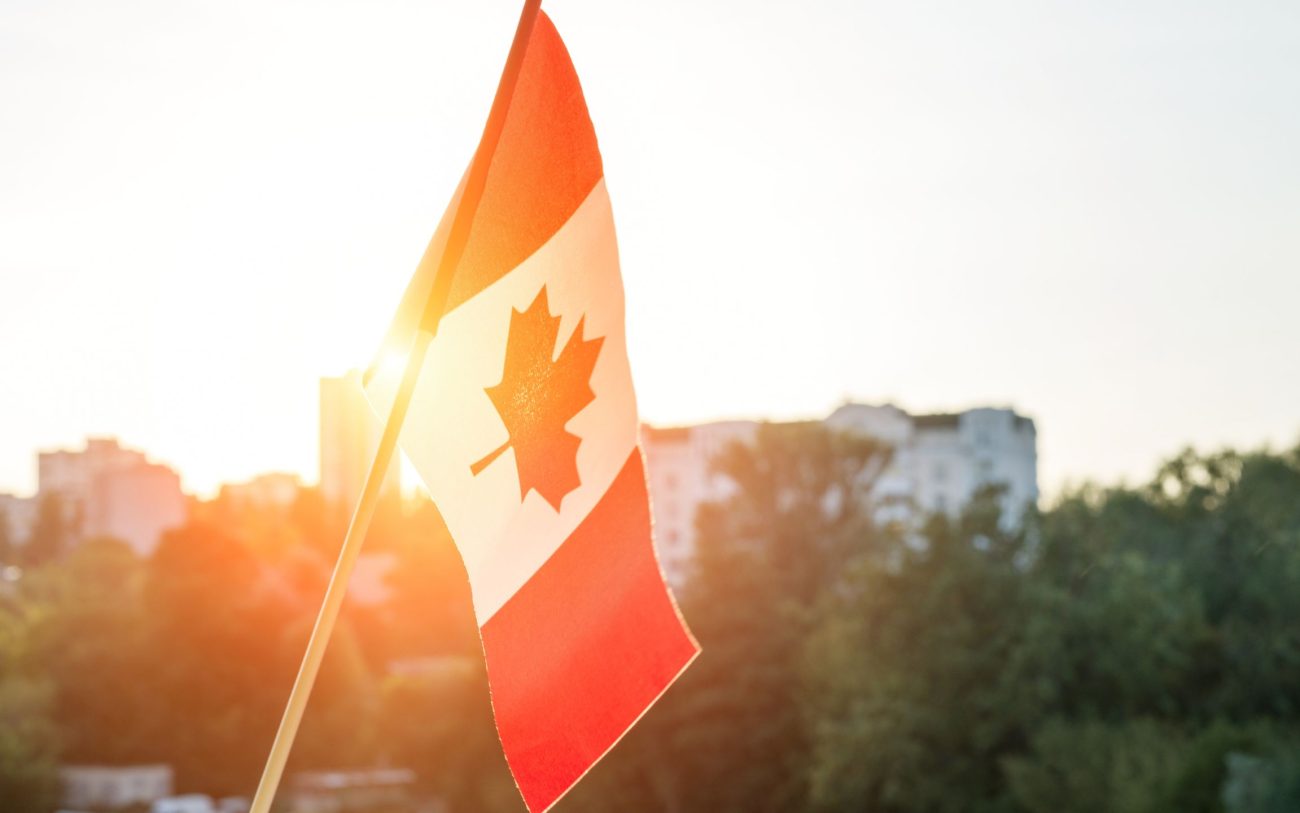
Canada Super Visa – Meaning, Requirements, and Processing Time
Dreaming of spending more quality time with your children or grandchildren in Canada? The Super Visa might be the answer! This special visa allows parents and grandparents of Canadian citizens or permanent residents to visit for extended periods, up to five years at a time. In this comprehensive guide, we’ll delve into everything you need to know about the Super Visa, including eligibility requirements, processing times, recent updates, associated fees, and more. So, get ready to explore the possibilities of extended family reunions in the beautiful landscapes of Canada!
What is a super visa?
Dreaming of spending quality time with your children or grandchildren in Canada? The Super Visa might be your golden ticket. This special visa allows parents and grandparents of Canadian citizens or permanent residents to visit for extended periods, offering a much deeper connection than a standard visitor visa.
Imagine enjoying holidays, birthdays, and everyday moments for up to five years at a time! With the Super Visa’s multiple entry feature, you can come and go within a ten-year validity period, providing the flexibility to tailor your visits to your needs and desires. However, it’s important to remember that eligibility comes with specific requirements, including demonstrating financial stability and obtaining health insurance.
If a shorter visit of six months or less is all you have in mind, a regular visitor visa might be sufficient. But for those yearning for a more extended stay and deeper connection with loved ones in Canada, the Super Visa opens the door to cherished experiences and lasting memories.
How long you can stay in Canada with a Canada Super Visa
The Canada Super Visa is a valuable option for parents and grandparents of Canadian citizens or permanent residents seeking extended visits. Unlike a regular visitor visa limited to six months, the Super Visa grants stays of up to five years at a time. This extended timeframe allows for deeper connections and fosters a stronger sense of family unity.
However, navigating the intricacies of entry can be confusing. The initial application date plays a role – you’re always eligible for a five-year maximum stay upon approval. But the actual entry date into Canada with your Super Visa introduces another factor. The border officer has the final say on your initial permitted stay, which could be less than five years.
Don’t fret! Here’s the beauty of the Super Visa: it offers flexibility. If the initial entry period granted is less than five years, you have options. You can simply leave Canada before your authorized stay ends and then re-enter. If you meet all the Super Visa requirements at that time, the border officer might grant you the full five years upon re-entry. Alternatively, you can apply to extend your stay within Canada, potentially adding another two years to your visit.
The Super Visa unlocks the door to longer visits, fostering cherished moments and memories with your loved ones in Canada.
Eligibility for Super visa (for parents and grandparents)
Eligibility Requirements:
- Your Host:
- Must be your child or grandchild.
- Must be a Canadian citizen, permanent resident, or registered Indian (with proof provided through documents like citizenship certificates, permanent resident cards, or Certificate of Indian Status).
- Must be at least 18 years old and residing in Canada.
- Must meet or exceed the minimum necessary income set by the Canadian government (based on Statistics Canada’s Low Income Cut-Offs).
- Must sign a Letter of Invitation promising financial support for your visit.
- Their spouse or common-law partner (if applicable) can co-sign the invitation letter if they are Canadian citizens or permanent residents.
- You (the Applicant):
- Must meet the requirements for temporary residence in Canada as a visitor (medical checks, security background checks, etc.).
- Must provide a private medical insurance policy valid for your entire stay in Canada.
Documentation Required:
- Proof of your relationship to the inviting host (birth certificates, baptismal certificates, etc.).
- Proof of your host’s status in Canada (citizenship documents, permanent resident cards, etc.).
- Proof of your host meeting the minimum necessary income (income tax documents, employment letters, etc.).
- Private medical insurance policy documents.
- Letter of Invitation from your child/grandchild.
Minimum necessary income requirements:
A table to find out if they meet the minimum income requirements.
| Family size | Minimum necessary gross income |
| 1 person (your host) | $27,514 |
| 2 person | $34,254 |
| 3 person | $42,100 |
| 4 person | $51,128 |
| 5 person | $57,988 |
| 6 person | $65,400 |
| 7 person | $72,814 |
| More than 7 people (for each extra person added) | $7,412 |
Health Insurance:
This is crucial. You’ll need a valid private health insurance policy from either a Canadian company or a minister-approved insurer outside Canada (details forthcoming). The policy must:
- Be valid for at least one year from your entry date.
- Be fully paid or have a paid deposit (quotes won’t suffice).
- Cover medical care, hospitalization, and repatriation.
- Provide a minimum of $100,000 in emergency coverage.
Proof that your host is a Canadian citizen, permanent resident or Registered Indian:
Proof of Host Status:
In order to sponsor your parents or grandparents for a Super Visa, you’ll need to provide documentation proving their invitation to stay with you in Canada. But first, you need to establish your own status as a Canadian citizen, permanent resident, or Registered Indian.
Here’s a breakdown of the required documents:
- Proof of Your Canadian Status
- Canadian Citizen:
- Provide a copy of your Canadian citizenship certificate.
- Permanent Resident:
- Provide a copy of your permanent resident card (PR card).
- Registered Indian:
- Provide a copy of your Secure Certificate of Indian Status or Certificate of Indian Status (status card).
- Canadian Citizen:
Important Note: If your spouse or common-law partner is inviting your parents or grandparents as well, you’ll also need to include copies of their citizenship/permanent resident documents along with yours.
Additional Considerations:
- New Rules: Keep an eye out for updates regarding approved foreign insurance companies in the coming months.
- Maintaining Insurance: Ensure your health insurance remains valid throughout your stay, renewing it if necessary before your departure.
Remember: This is a general overview. For the most up-to-date information and detailed instructions, always refer to the official Canadian government website (https://www.canada.ca/en/immigration-refugees-citizenship/services/visit-canada/parent-grandparent-super-visa.html).
Calculating Family Size for Minimum Income
- Include yourself and any other applying super visa applicant (spouse).
- Include your host child/grandchild, their spouse/common-law partner (even if separated).
- Count dependent children of your host and their partner, regardless of custody arrangements.
- Consider previously approved super visa holders invited by your host.
- Include previously sponsored individuals by your host where the sponsorship undertaking is still active.
Processing Time and Fees
- Processing times can vary, but currently estimates suggest around 29 days. This may fluctuate based on application volume and complexity.
- The application fee for a Super Visa is CAD$100. There might be an additional fee for biometrics (around CAD$85).
How to apply Super visa (for parents and grandparents)
The Canada Super Visa allows parents and grandparents of Canadian citizens and permanent residents to visit for extended stays. Here’s a breakdown of the online application process through the IRCC Portal:
Important Note: You can only apply for a Super Visa from outside Canada.
Steps:
Account Creation and Invitation Code:
- If it’s your first time using the IRCC Portal, you’ll need an invitation code to create an account. This code is usually provided by your inviting child or grandchild in Canada who will be supporting your visit.
- Once you have the code, head to the IRCC Portal and create your account. You’ll then be able to sign in and begin your application.
Online Form and Document Upload:
- The online application form will guide you through a series of questions about yourself, your background, and your trip to Canada. Answer all questions accurately and completely.
- After completing the form, you’ll receive a personalized list of documents you need to upload to support your application. This list may vary based on your specific situation. Some common documents include:
- Carefully review the document checklist and ensure you upload all required documents in the specified format. Incomplete applications may result in delays or rejections.
- Valid passport
- Medical examination results
- Proof of relationship to your inviting child/grandchild in Canada
- Private health insurance from a Canadian insurance company (minimum coverage amount required)
- Letter of invitation from your child/grandchild in Canada (including details of their financial situation and their commitment to support you during your visit)
- Proof of your financial status (demonstrating you have sufficient funds to support yourself during your stay)
Payment:
Once you’ve completed the application form and uploaded all documents, you can proceed to the payment section. The IRCC Portal accepts credit cards and prepaid cards from major providers like Visa®, MasterCard®, American Express®, JCB®, and UnionPay®.
Additional Tips:
- Start the application process well in advance of your planned visit to Canada, considering processing times.
- Review the official IRCC Super Visa guide for the most up-to-date information and requirements: https://www.canada.ca/en/immigration-refugees-citizenship/services/visit-canada/parent-grandparent-super-visa.html
- Seek help from an immigration consultant if you have any questions or need assistance with the application process.
After you apply Super visa (for parents and grandparents)
Find out what happens after you apply for a super visa.
Biometrics:
- Schedule a biometrics appointment promptly to avoid delays. (https://ircc.canada.ca/english/information/where-to-give-biometrics.asp)
- Ensure you understand the process beforehand.
Processing:
- Incomplete applications risk refusal. Double-check all required documents. (https://www.canada.ca/en/immigration-refugees-citizenship/services/visit-canada/parent-grandparent-super-visa.html)
- Be prepared for additional steps:
- Interviews
- Medical exams
- Police certificates
- Supplying further information
- Processing times vary depending on the visa office and any extra steps. Most applications are decided within a few months.
- Approval results in instructions for passport submission or a letter for visa-exempt countries.
- Refusal comes with an explanation for denial.
Arrival in Canada:
- Identity Check:
- Major airports: Automated fingerprint kiosks verify your identity.
- Smaller airports/land entries: Fingerprint checks might occur during secondary inspections.
- Have Documents Ready:
- Passport or travel document
- Super visa application documents (easily accessible)
- Remember, a valid super visa doesn’t guarantee entry.
Entry into Canada:
- Passing the identity check and meeting entry requirements allows a 5-year stay.
- False or incomplete information or inability to convince the officer of eligibility or departure intent can lead to entry denial.
- Ensure your passport remains valid for your entire stay.
Living in Canada:
- Research Canada beforehand to understand the climate, culture, government, and way of life.
Working or Studying:
- A super visa does not permit work or study. Separate permits are required for most visitors.
Conclusion
The Canada Super Visa offers a fantastic opportunity for parents and grandparents to connect with their loved ones in Canada for extended periods. By understanding the eligibility requirements, application process, and important notes, you can increase your chances of a successful application and enjoy a memorable visit to Canada.




